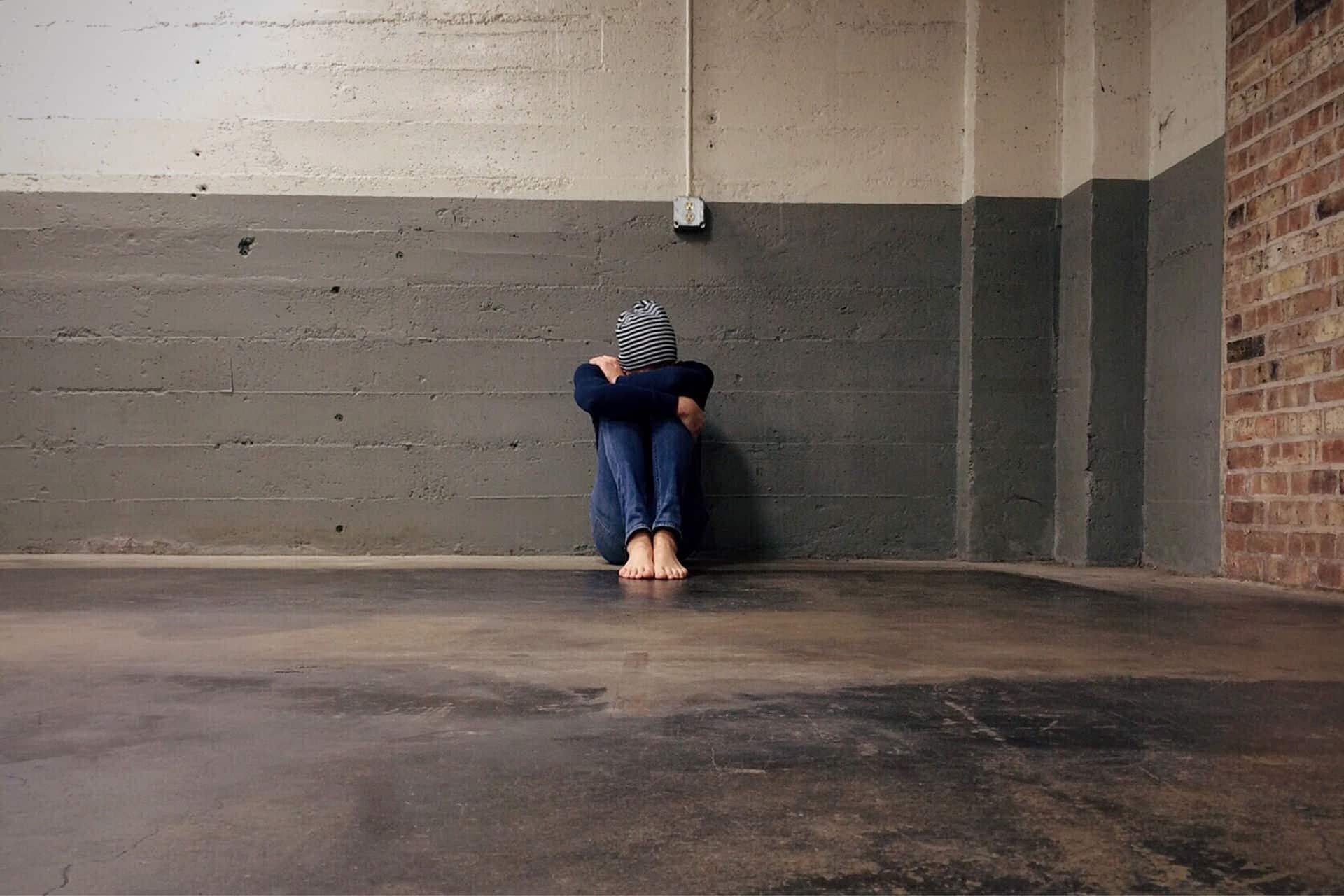Contact Orlando Treatment Solutions
For any other questions please call us or fill out the contact us form. We're here to help you at Orlando Treatment Solutions.
Contact Us Call Now (321) 415-3213Popular Post
Mental health is a critical aspect of overall well-being, and its importance cannot be overstated. Not only does mental health affect individuals and their families, but it also has a significant impact on society as a whole. The economic consequences of mental health issues are far-reaching, affecting productivity, healthcare costs, and the overall functioning of communities. In this article, we will explore the various ways in which mental health impacts the economy and society, and why it is crucial to address this issue.

Impacts of Mental Health on Society
1. Productivity Loss
Mental health problems can lead to a significant loss of productivity in the workplace. According to the World Health Organization (WHO), depression and anxiety disorders alone cost the global economy an estimated $1 trillion per year in lost productivity. Employees with mental health issues may struggle to concentrate, experience decreased motivation, and have difficulty completing tasks efficiently. This not only affects their performance but also has a ripple effect on the overall productivity of the organization.
When employees are dealing with mental health problems, their ability to focus and perform at their best can be severely compromised. Depression and anxiety disorders, in particular, can have a significant impact on their daily functioning. These individuals may find it hard to concentrate on their work, leading to decreased productivity and lower-quality output. In addition to struggling with concentration, employees with mental health issues often experience a lack of motivation.
They may feel a sense of apathy or disinterest in their work, making it difficult for them to find the drive to complete tasks efficiently. This can result in missed deadlines, unfinished projects, and a general decline in their overall performance. Furthermore, mental health problems can also lead to difficulties in managing stress and coping with workplace pressures.
This can further exacerbate productivity issues, as employees may become overwhelmed and struggle to effectively handle their workload. The impact of mental health problems on individual employees is not limited to just their performance. It also has a ripple effect on the overall productivity of the organization. When one employee is struggling with mental health issues, it can create a negative work environment and affect the morale of other team members.
This can lead to decreased collaboration, communication, and overall teamwork, further hindering productivity. To address these challenges, organizations need to prioritize mental health and create a supportive work environment. This can include implementing policies and programs that promote mental well-being, providing access to resources such as counseling services, and fostering a culture of open communication and understanding.
By investing in the mental health of their employees, organizations can not only improve individual well-being but also enhance productivity and overall success.
2. Increased Healthcare Costs
Mental health problems also have a substantial impact on healthcare costs. Individuals with mental health conditions often require extensive medical treatment, therapy, and medication. According to a study published in the Journal of Mental Health Policy and Economics, the annual healthcare costs for individuals with mental health conditions are around 75% higher compared to those without mental health issues.
This increased cost is primarily due to the need for specialized care and ongoing treatment for mental health conditions. Individuals with mental health issues may require frequent visits to healthcare providers, including psychiatrists, psychologists, and therapists, which can be expensive. Additionally, the cost of medications and other treatment options, such as hospitalizations or outpatient programs, can significantly contribute to the overall healthcare expenses.
Moreover, individuals with mental health conditions often experience comorbidities, meaning they have other medical conditions alongside their mental health issues. These comorbid conditions can further increase healthcare costs, as they require additional medical interventions and treatments. Furthermore, mental health problems can impact a person’s ability to work and maintain employment, leading to loss of income and potential reliance on government-funded healthcare programs. This can further strain healthcare budgets and resources.
The increased healthcare costs associated with mental health conditions not only impact individuals but also have broader implications for society. The burden falls on healthcare systems, insurance providers, and governments to allocate resources to meet the needs of individuals with mental health issues. This highlights the importance of early intervention, prevention, and adequate access to mental health services to mitigate the impact on healthcare costs.
3. Impact on Education
Mental health problems can have a profound impact on education and academic achievement. Students with mental health conditions may struggle to concentrate, have difficulty completing assignments, and experience decreased motivation. This can result in lower grades, increased dropout rates, and reduced opportunities for higher education.
Furthermore, mental health problems can also disrupt social interactions and relationships, leading to feelings of isolation and loneliness. Students may find it challenging to engage in classroom discussions, participate in group projects, or form meaningful connections with their peers. This can not only affect their academic performance but also hinder their overall development and well-being.
Moreover, the stigma surrounding mental health can prevent students from seeking help and support. Many individuals may feel ashamed or embarrassed about their condition, leading to reluctance to reach out for assistance. This lack of intervention can exacerbate their mental health issues and further impede their educational progress.
In addition, the impact of mental health problems extends beyond the individual student. Teachers and educational institutions may struggle to provide the necessary accommodations and resources for students with mental health conditions. This can create a challenging environment for both the affected student and their educators, as they try to navigate the complexities of managing mental health while maintaining academic performance.
Schools and educational systems must prioritize mental health support and create a safe and inclusive environment for all students. This can involve implementing comprehensive mental health programs, training teachers and staff on recognizing and addressing mental health issues, and fostering a culture of understanding and acceptance.
By addressing mental health concerns in education, we can help students thrive academically, emotionally, and socially. It is essential to prioritize the well-being of students and provide them with the necessary support to overcome the challenges they may face.
Ultimately, this will not only benefit individual students but also contribute to a more inclusive and successful education system as a whole.
4. Burden on Social Welfare Systems
Mental health issues place a significant burden on social welfare systems. Individuals with severe mental illnesses often require long-term support and care, including access to housing, disability benefits, and community services. The costs associated with providing these services can be substantial and strain the resources of social welfare systems.
Moreover, mental health issues can also impact an individual’s ability to work and maintain stable employment. This can lead to a reliance on social welfare programs for income support. Additionally, individuals with mental illnesses may face challenges in finding suitable housing, which can further increase the strain on social welfare systems.
Furthermore, mental health issues can also result in increased healthcare costs. Individuals with mental illnesses may require frequent visits to healthcare professionals, as well as medication and therapy. These costs can add up over time and contribute to the overall burden on social welfare systems. In addition to the financial burden, mental health issues can also have a significant impact on the overall well-being of individuals and their families.
Untreated mental illnesses can lead to poor quality of life, increased disability, and a higher risk of homelessness. All of these outcomes place additional strain on social welfare systems, as they must provide support and services to individuals in need. Addressing mental health issues requires a multi-faceted approach that includes early intervention, access to quality mental health services, and support for individuals in their recovery journey.
By investing in mental health services and resources, social welfare systems can reduce the long-term burden on their resources and improve the overall well-being of individuals and communities.
5. Impact of Mental Health on the Criminal Justice System
Mental health issues are closely linked to the criminal justice system. Studies have consistently shown that a significant proportion of individuals in prisons and jails have mental health conditions. The lack of appropriate mental health services and support often leads to individuals with mental illnesses being involved in the criminal justice system, either as perpetrators or victims of crimes.
This connection between mental health and the criminal justice system is complex and multifaceted. Firstly, individuals with untreated mental health conditions may engage in criminal behavior due to the symptoms of their illness. For example, someone suffering from schizophrenia may experience hallucinations or delusions that compel them to commit acts that they would not otherwise engage in.
Furthermore, individuals with mental health conditions may find themselves caught up in the criminal justice system due to the lack of accessible and effective mental health services. Many individuals who struggle with mental illnesses do not receive proper treatment or support, which can exacerbate their symptoms and lead to unhealthy coping mechanisms.
This can result in a cycle of criminal behavior and repeated interactions with law enforcement. Additionally, individuals with mental health conditions are more vulnerable to becoming victims of crimes. Their impaired judgment, decreased ability to protect themselves, and increased likelihood of being in high-risk situations make them easy targets.
This vulnerability can expose them to physical and sexual assault, exploitation, and victimization within the criminal justice system itself. Unfortunately, the current criminal justice system often lacks the resources and training necessary to adequately address the mental health needs of those involved. Prisons and jails are not equipped to provide comprehensive mental health care, and individuals with mental illnesses may not receive the treatment they require while incarcerated.
This can further perpetuate their cycle of involvement in the criminal justice system and hinder their chances of successful reintegration into society upon release. Addressing the link between mental health and the criminal justice system requires a comprehensive approach. It is crucial to invest in mental health services and support, both within and outside of the criminal justice system.
This includes early intervention programs, community-based mental health treatment options, and specialized training for law enforcement and prison staff to better understand and respond to individuals with mental health conditions. By prioritizing mental health and providing appropriate support, we can break the cycle of individuals with mental illnesses being involved in the criminal justice system.
This not only benefits the individuals themselves but also promotes safer communities and more effective and equitable justice systems.
Conclusion
The economic impact of mental health on society is significant and multifaceted. From productivity loss in the workplace to increased healthcare costs, mental health issues affect individuals, businesses, healthcare systems, educational institutions, and social welfare systems.
Governments, organizations, and communities must prioritize mental health and invest in prevention, early intervention, and comprehensive treatment services. By addressing mental health issues effectively, we can not only improve the well-being of individuals but also create a more productive, inclusive, and economically thriving society.
Mental health is a major public health issue, and it has a significant economic impact on society. The World Health Organization estimates that the global cost of mental illness is $1 trillion per year. In the United States, mental illness costs the economy $193 billion per year in lost productivity.
Orlando Treatment Solutions is a mental health treatment center in Orlando, Florida. We provide a variety of evidence-based treatment services for a variety of mental health conditions, including depression, anxiety, and PTSD. We are committed to helping our patients recover from their mental health conditions and live full and productive lives.
If you or someone you know is struggling with a mental health condition, please reach out to Orlando Treatment Solutions today. We offer a free consultation so that you can learn more about our services and see if we are a good fit for you.
Call us today at (321) 415-3213 to schedule a consultation.
We look forward to helping you on your journey to recovery.
Contact Us
CALL US NOW
Orlando Treatment Solutions will iron out the details for you in a manner that will make you confident in your path to sobriety. That first simple call is your ticket to making Orlando Treatment Solutions your solution for addiction. Get the freedom from addiction that you deserve today.
Call us now on (321) 415-3213Updated News
LATEST POSTS
Orlando Treatment Solutions makes numerous media outlets available to encourage you in your recovery process. Digital media literature is approved by a licensed professional and intended to guide you in your recovery path.

Years of experience
Our leadership team has extensive experience in dual-diagnosis treatment and is ready to help those who are struggling with substance use and mental health.

Specialists
Our staff consists of many licensed addiction and mental health treatment facilitators and other staff who are ready to share their experience and their success.

Happy patients
Orlando Treatment Solutions has helped over 2,000 people who have struggled with substance use (alcohol and drug addiction) and mental health find freedom.
Contact Us
GET IN TOUCH
Reaching out to Orlando Treatment Solutions may be the most important call of your recovery process. A caring professional is waiting for your call to be your guide to addiction-free living.
Need Help? Contact Us
Areas and Cities We Serve SUD & Mental Health Treatments in Florida
Oviedo Deland Palm Coast Jacksonville Port St. Lucie Tampa Altamonte Springs Kissimmee St Cloud Winter Garden Winter Park Clermont Melbourne Sanford Deltona Lake Mary Mount Dora Leesburg The Villages Union Park St. Augustine Dupont Port Orange Ormond Beach Holly Hill Daytona Beach Edgewater Oak Hill Maytown Eldora Geneva Titusville Christmas Port St. John Port Canaveral Cocoa Beach Osteen Satellite Beach Palm Bay Roseland Sebastian Fellsmere Gifford Rockledge
 info@shc.health
info@shc.health 




